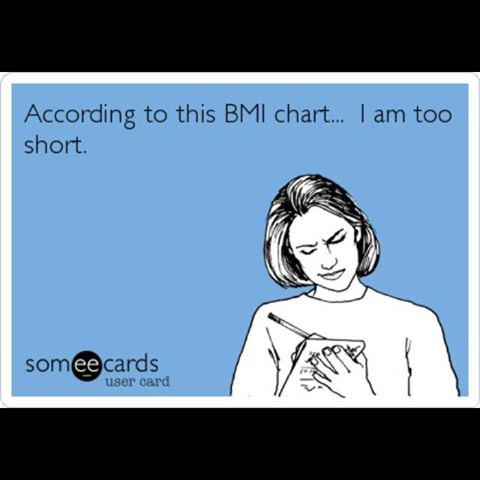Ideal Body Weight & BMI are measurements used by the medical field to determine health in weight, but does it always give an accurate picture?
These measurements only take into account height, weight and gender. Body weight is based on so much more than two characteristics - It is based on genetics, body shape, muscle mass, gender, plus a lot more. A person can technically be overweight or obese yet completely healthy. A perfect example of this is pro football players, boxers, body builders, and wrestlers. Not to mention the thousands of Americans that have no medical diagnosis besides being classified as overweight for their height. The reverse is true as well, someone can be at a healthy weight for their height and still be unhealthy. I sadly see this in my office far too often. Patients, families, and the medical field might not ask any further questions about lifestyle habits if the person's numbers fall within the "desired" range. The number of eating disorder that go unnoticed due to the fact that the patient may be at a normal weight for their height or even considered over weight is baffling.
Weight, Ideal Body Weight, and BMI leave out a lot about an individual and we need to start looking at the person as a whole not just a couple numbers. Health is more than just a number.
Set Point Theory: The More Accurate Way to Determine Healthy Body Weight
Set point theory is commonly used with Intuitive Eating, as well as eating disorder treatment. Set point theory states that every human has an certain weight where their body optimally functions and that your body will fight to maintain this weight by increasing or decreasing the metabolism. Set point weight varies from person to person and cannot be controlled similar to your eye color or your shoe size. This allows for a person's genetics, body shape, muscle mass, gender and other characteristics to be taken into account when determining what healthy looks like for that individual.
If you are interested in getting more information about set point theory or weight management, please visit my contact page or email me at caseyvoorhies@gmail.com.








LED Case Consultation - Ethics & Treatment of Longstanding Eating Disorders, Dallas Nutritional Counseling & Angela Harris Counseling professional consultation and supervision for severe and enduring eating disorders